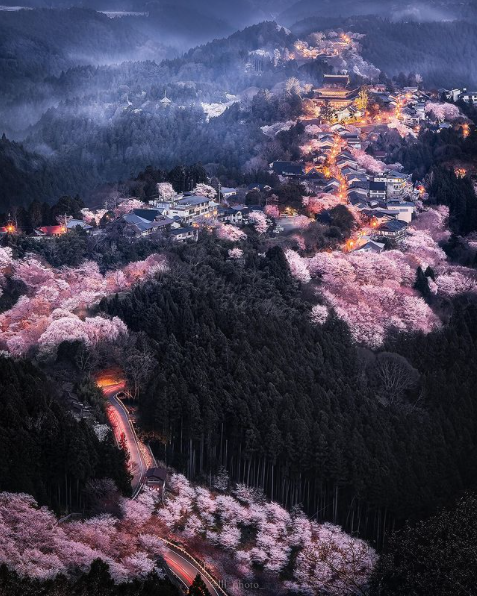In Japan, the older you are, the more highly regarded you become.
“That’s the way life ought to be.” --tnm
A potent respect for the elderly stands ubiquitous behind the silent fabric of Japanese life. The Chinese, Koreans, and Japanese are widely admired for the degree to which they respect their elders.
Over time, this reverence for the elderly becomes quietly visible. It can be seen in many ways but here are five channels this respect for their elders can be brought to light.
One
Sakiko Miyazaki is a close friend of Alex Bentz, who writes for the Beacon. How older adults are viewed in America and Japan has been an interesting exploration for these two friends. Sakiko writes:
Japan has been influenced heavily by China where respect for the elderly is viewed as something all children should have. Teens respect elders.
“Many teens go through a rebellious phase,” Sakiko admits, chuckling, “but I feel like when it comes to the elderly they take a step back.
“The unconscious action [of treating our elders with respect] has been ingrained into us from a young age as we watch our parents and others in our community. So, doing things out of respect for the elderly is almost in our blood.”
Two
Butsudan. A butsudan is household shrine, an elemental feature in the life of a traditional Japanese family, the center of respect for remembering ancestors. 60 percent of city dwelling families in Japan possess a butsudan, that rises to 90% in rural areas.
Standing before his butsudan in Niimi, my friend Yuji introduced me to his ancestors. He called it a kind of alter. Click HERE to see video inside Yuji’s butsudan. (skip to 10:17) He reached inside and withdrew a small and very old book called
Three
 |
| Photo Credit: matcha-jp.com |
Four
Respect for the Aged Day (敬老の日, Keirō no Hi) is a public holiday celebrated to honor elderly citizens where the Japanese government gives a commemorative silver sake cup tothose who reach 100 years of age. People return home on this day to pay respect to their elders.
The young people of Tokyo know to head for Harajuku for the latest fashions. Those over 65 head for Sugamo Jizo-dori, affectionately known as “Grandma’s Harajuku”.
 |
| Photo Credit: DigJapan |
This Jizo-dori is a flat 800 meter long traditional shopping street, nicknamed Obāchan no Harajuku, “Harajuku for old ladies”. The street is lined with textured slip preventing bricks. The shops are largely barrier free, with wheelchair ramps. The shopkeepers seem extra friendly and willing to speak slowly. The 200 shops present a wide range of restaurants, cafes, grocery and clothing stores catering to senior citizens. Many are Mom-and-Pop shops that forgot to change with the times. A perfect place for a day out with the Grannies to pay respect at Koganji, the healing temple.
 |
| Photo Credit: thesoulofjapan.blogspot |
Those with a sore shoulder for example will stop at “Arai Kannon” the legendary washing diety, purchase a small white hand towel, rinse the statue’s shoulder with holy water, wipe it down with the towel and your pain will go away.
Five
The way I’ve been treated in Japan...

